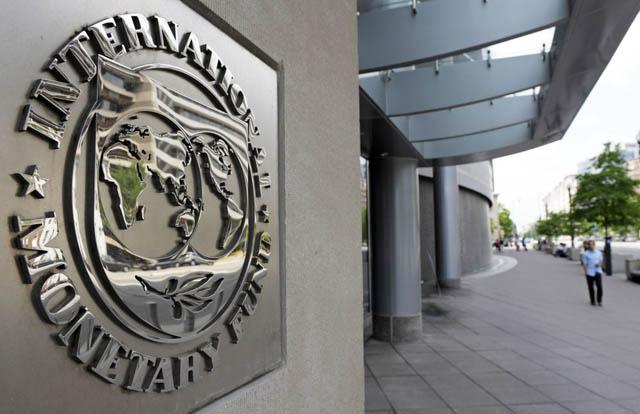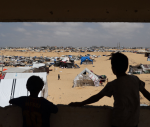You are here
Jordan, IMF reach staff-level deal on final review
By JT - Jun 24,2015 - Last updated at Jun 24,2015
AMMAN — The International Monetary Fund (IMF) announced Wednesday that its mission for Jordan has reached a staff-level agreement on the seventh and final review under the 36-month Stand-By Arrangement (SBA).
This agreement is subject to approval of the IMF’s executive board, which is scheduled to consider the review at the end of July. Board approval would make available to Jordan about $400 million, said Kristina Kostial, IMF mission chief for Jordan.
An IMF team visited Amman from June 9-24 to review Jordan’s economic programme, supported by SBA, in the amount of about $2 billion, or 800 per cent of Jordan’s quota at the IMF that was approved by the executive board on August 3, 2012.
“We welcome the authorities’ commitment and progress in implementing their economic programme despite a difficult regional environment stemming from the conflicts in Syria and Iraq," Kostial said in a statement e-mailed to The Jordan Times.
The IMF official said since the programme started three years ago, the government has implemented macroeconomic policies that have contributed to stabilising the economy and helping it weather a series of severe external shocks.
Growth is gradually picking up, inflation is contained and the current account deficit is narrowing, she noted, adding that budgetary measures—including a bold fuel subsidy reform—as well as energy and water sector reforms contributed to a substantial decline in fiscal imbalances, ensuring that public debt will stabilise this year and start declining in 2016.
Monetary policy complemented these efforts, helping to restore confidence and rebuild international reserves to an adequate level, which in turn has helped the Central Bank of Jordan reduce interest rates to stimulate growth, the IMF chief said.
Programme performance has been strong. All end-April performance criteria were met by comfortable margins and policies are also on track to meet their 2015 targets. The central government deficit was in line with projections from January-April and, aided by lower oil prices, the electricity company NEPCO significantly reduced its losses, she added, indicating that international reserves continued to over-perform.
The combined public deficit is projected at 3.5 per cent of the GDP for 2015, the current account (including grants) at 7.6 per cent of the GDP and reserves at seven months of imports. Fiscal structural reform is moving forward with the government improving its budget preparation and execution, said Kostial.
According to the IMF, Jordan’s economy is expected to further gain strength over the medium term, but there are downside risks.
Growth is projected to increase to about 3.5 per cent in 2015 as confidence gradually returns, and to 4.5 per cent over the medium term. Inflation should stay low at about 2 per cent.
“Discussions focused on sustaining the programme’s achievements. Fiscal and monetary policies are on track to meet 2015 objectives. Looking beyond 2015, the authorities reiterated their commitment to gradual fiscal consolidation. They aim at reducing debt to about 70 per cent of the GDP by 2020, a level that would markedly reduce vulnerability to shocks,” Kostial noted.
Commenting on Jordan Vision 2025 — the recently adopted 10-year plan of economic and social policies — Kostial said the blueprint provides a roadmap for structural economic reforms but needs to be anchored in a medium-term macroeconomic and fiscal framework. Strong implementation of Vision 2025 could build the basis for high, sustained and inclusive growth, and eventually reduce the need for donor support.
The IMF stressed that Jordan needs continued assistance from donors, in particular to help cover the cost of hosting Syrian refugees.
Related Articles
The International Monetary Fund (IMF) mission to Jordan has completed its sixth review under the Stand-By Arrangement (SBA), which is expected to allow the Kingdom to receive $200 million in the coming weeks.
AMMAN — The International Monetary Fund (IMF) expects Jordan's economy to grow by 3.2 per cent this year, lower than the 3.7 per cent projec
The International Monetary Fund’s (IMF) executive board is expected to approve the disbursement of $264 million to Jordan late this month under a Stand-By Arrangement (SBA), according to a statement issued by the organisation Friday.
















